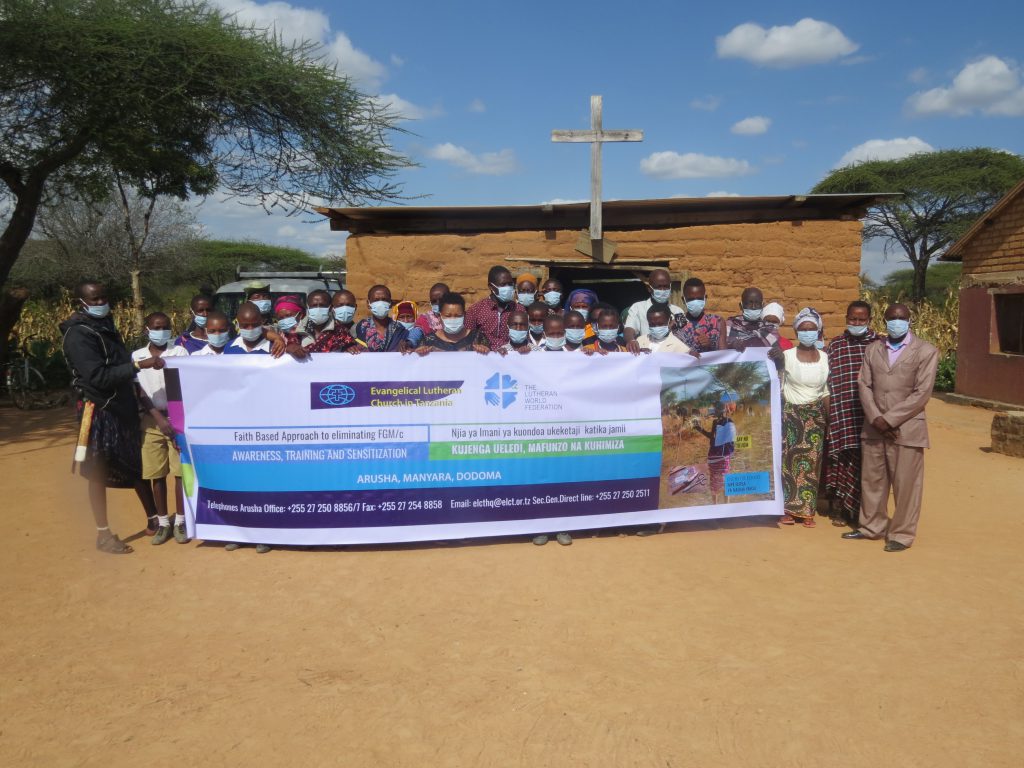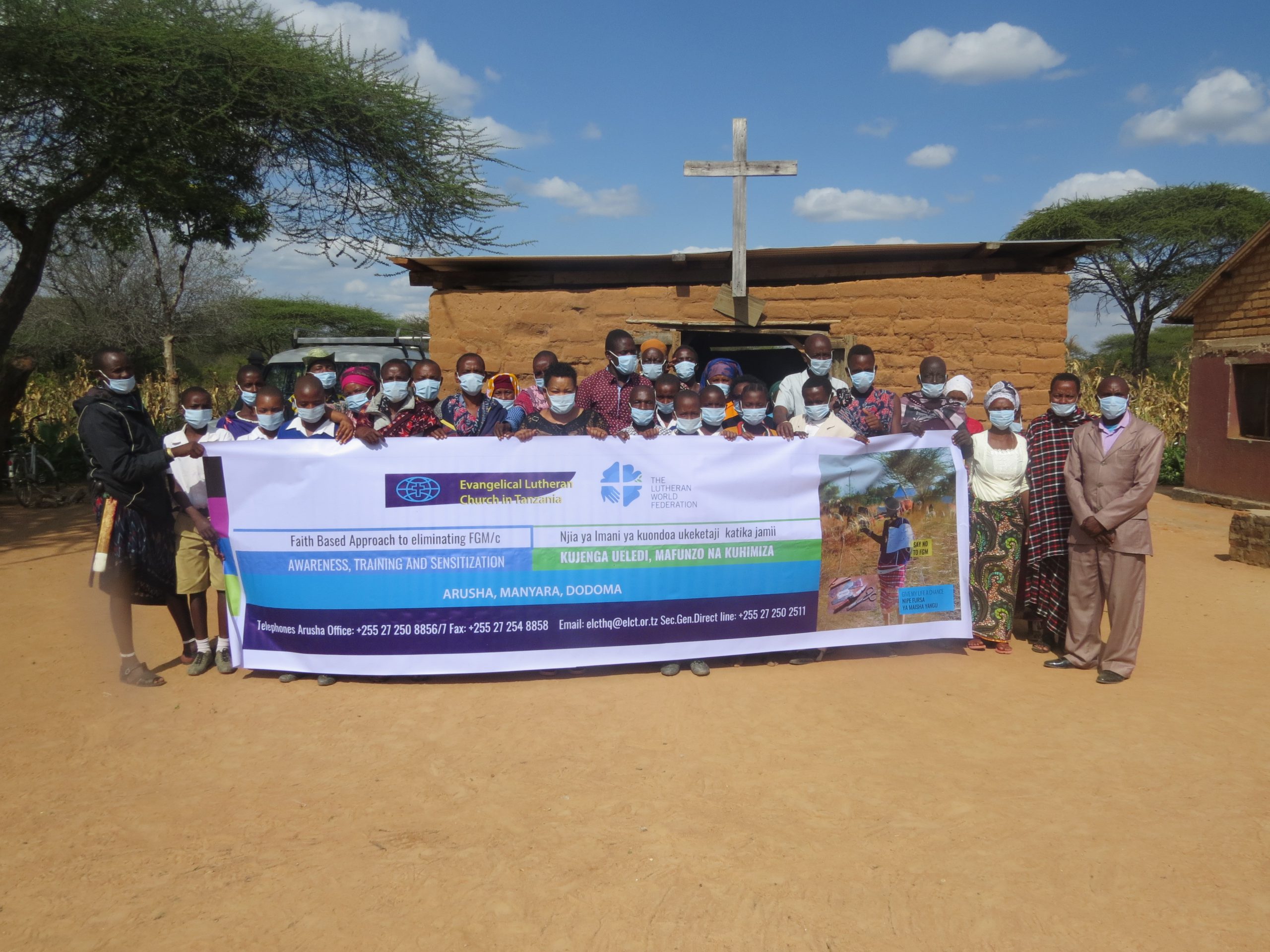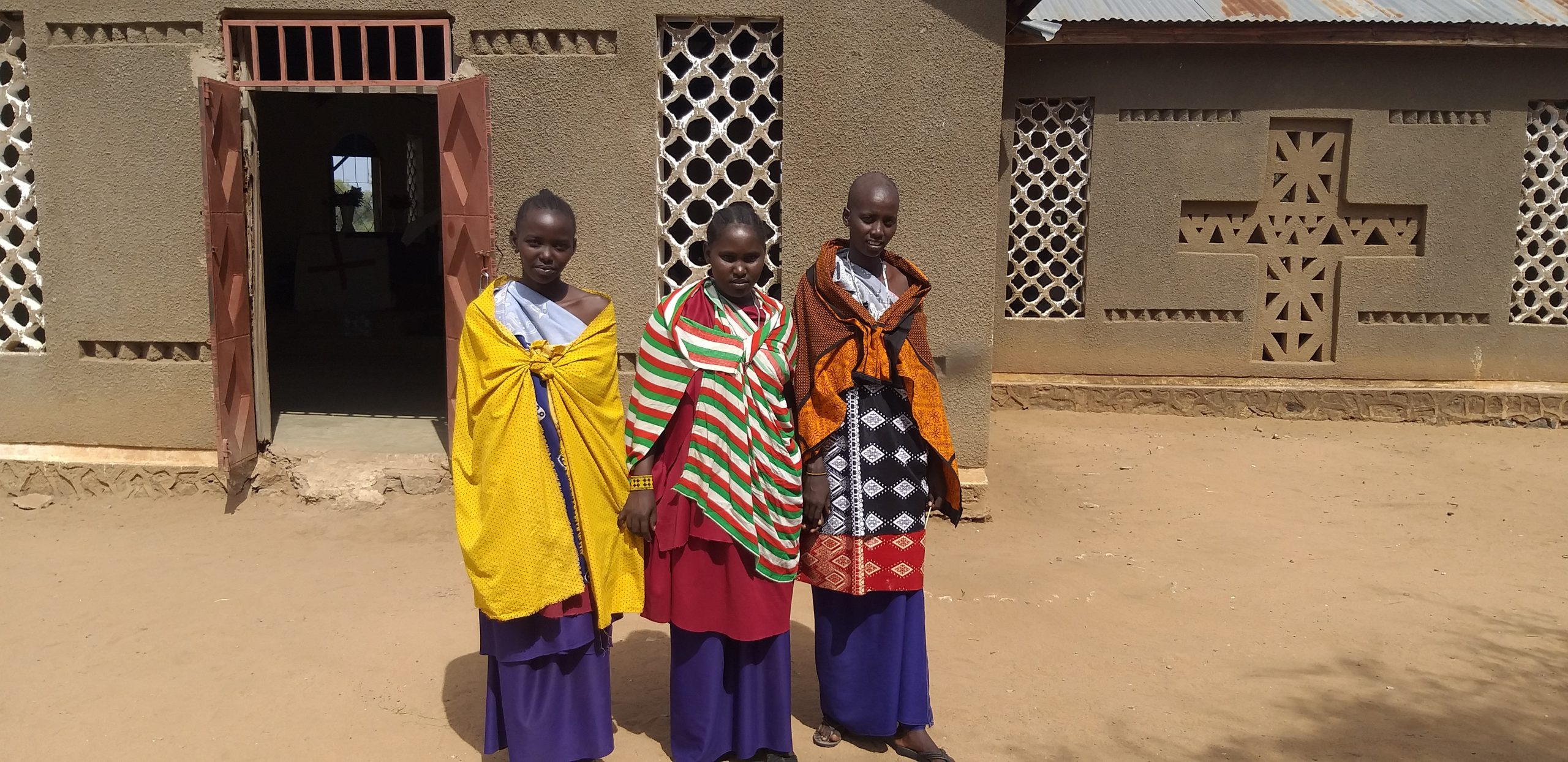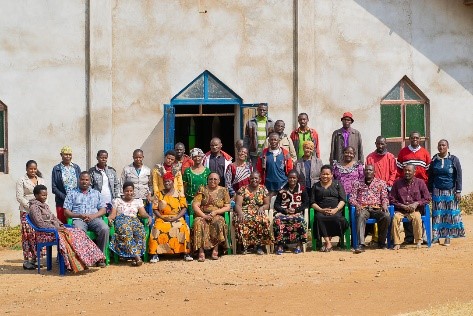Faith-Based Approaches to Eliminating FGM/C
Do you want to discover more?
The FGM/C project under the ELCT Programs and Development department is designed to create changes in knowledge, attitudes and behaviour and decrease of early marriage and other forms of gender based violence
According to the Tanzanian Demographic and Health Survey 2015-2016, 10% of women and girls aged 15-49 years in Tanzania have undergone FGM/C
The FGM project is specifically implemented in three Regions of Tanzania namely Manyara, Dodoma and Arusha.
The main aim of the project is creating changes in knowledge, attitudes and behaviour resulting in a steady decrease of FGM/C. Specifically, the project used faith and community leaders as agents of change to help increase awareness within communities about the risks of FGM/C and introduce alternative rites of passage. Through these initiatives, the project expects restoring the dignity of victims of FGM/C, improved support to those who have escaped the practice as well as FGM/C practitioners in shifting to alternative livelihood activities. The project also advocates for the enforcement of existing legislation and contribute to strengthening National FGM/C related legislation. Furthermore, the project uses a strong moral authority and trust relationship of the Church with local communities to address the sensitive topic of FGM/C and other related forms of GBV. Again, the project works through existing Church and community structures, including in remote and hard-to-reach areas in order to build the capacity of traditional, Christian and Muslim leaders to act as powerful agents of change. Therefore, the main pillars of this project are structured in three thematic areas: (1.) Prevent FGM/C through awareness raising at community level; (2.) Support FGM/C victims, those who have escaped the practice and FGM/C practitioners to recover their dignity and establish viable alternatives; (3.) Advocate for better law enforcement towards local authorities and document good practices for strengthening national legislation on FGM/C.
|
our goals
To see society free of primitive traditional practices, better means of girls pass out and restoration of girls’ dignity and also intensify awareness of the effects of the FGM and increase the number of families denouncing by engaging Church and communities in strong campaign of strategic alternatives. |


Objectives
- Raising awareness on dangers of FGM among Church members and communities in the project coverage
- Advocacy upheld by Church leaders in three Dioceses, espousing right based approach in resolving girl child problems and challenges faces in the communities
Women and girl child are empowered through support for establishing SACCOS and social enterprises reaching women and girls
Project Outcomes
i) Local Church leaders and workers of church-based education and health institutions are actively engaged in a campaign on ending FGM/C and related forms of GBV. ii) Health workers in Christian hospitals and health centres have the capacity to provide high-quality services to clinical victims of FGM/C. iii) Church members and communities at large are well aware of the risks of FGM/C to women and children. iv) Alternative (non-harmful) rites of passage are practiced and accepted in the communities to mark girls’ entry into adulthood. In working with those affected and involved with the FGM/C practice directly v) Victims of FGM/C are supported in healing by receiving needed medical and psycho-social support. vi) Girls who have escaped the FGM/C practice are received in safe homes and receive support to pursue formal education or vocational skills training. vii) Practitioners of FGM/C are willing to abandon the practice and have secured their livelihood based on alternative income sources viii) Enforcement of existing legislation prohibiting FGM/C are enhanced within the targeted communities. Good practices on changing attitudes and behaviours on FGM/C and related forms of GBV are documented for use in National policy making as well as for replication of similar project interventions in other areas. |
Impact
The project achieved measurable level of impact. The targeted participants gained different skills and improved knowledge through training programs, workshops, meetings and direct participation in making and validating plans and sharing experiences in the course of project implementation
Sustainability: The project sustainability is demonstrated through different factors including · Continuous participation of empowered local community members, pastors, evangelists, and women, men including teachers, parents and youth. · The local government in collaboration with Church have set up committees from the village, locations to District levels to tackle the problem. This has been done by sensitizing the society on dangers of early marriages and FGM, besides telling parents that the practice violates the law.
|
In general, the project has managed to achieve a significant level of success in all the milestones, across the five critical areas of relevance, impact, effectiveness, efficiency and sustainability to ensure the project activities, outcomes and positive effects are sustainable.
|
Pictures in field






Talk to us
Have any questions? We are always open to talk and clear your doughty, new projects, creative opportunities and how we can help you.
CONTACT US THROUGH:
P.O.Box 3033, Arusha.
marymbaga@elct.or.tz
